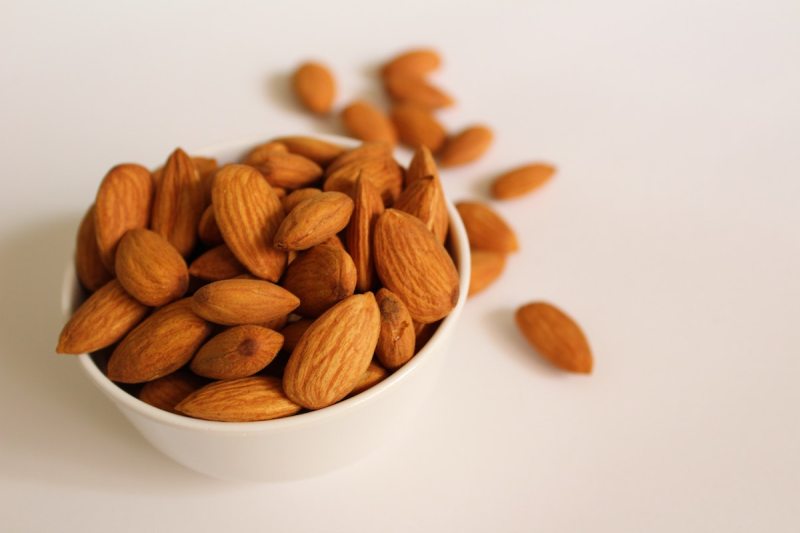If you are frequently in the gym or are an endurance athlete, you know that your muscles need all the support they can get. As an avid gym-goer and personal trainer, I have found that listening to the body, fueling it properly, and resting as needed can really make a difference in how I perform during my workouts and progress over time. There are many claims about various fitness supplements and nutrients, but what does the science say about magnesium?
Keep reading to discover the benefits of consuming enough magnesium, the best sources of magnesium for muscles, and more.
What is magnesium?

Magnesium is a powerhouse mineral that your body needs for everything from muscle function to energy production. It helps your muscles relax after they contract, which is why it’s great for preventing cramps and easing soreness. It also keeps your nerves firing properly, supports heart health, and can even help with stress and sleep.
The body does not produce magnesium, so you need to consume it through various food sources and supplements. However, many people don’t get enough, as it is not a nutrient like protein or fiber that gets a lot of attention.
If you find you often feel sluggish, crampy, or just off, low magnesium could possibly be the reason. A good supplement or magnesium-rich diet can make a big difference in how you feel.
How does magnesium help your muscles?

When it comes to your muscles working properly, magnesium is very important. In fact, an NIH study stated that “Magnesium plays multifaceted roles in muscle function, including its roles in contraction, electrolyte balance, energy provision, and anti-inflammatory and antioxidant defense, and has emerged as a critical mineral in preserving muscle health and functionality.”
If you aren’t consuming enough magnesium, your muscles are more likely to cramp, twitch, or feel tight and sore. This mineral also supports energy production, which is key for muscle endurance and recovery after your exercise sessions. It can reduce inflammation, ease post-workout soreness, and may even improve performance by preventing premature fatigue. This is especially important for those doing high volume throughout the week or intense training.
Plus, magnesium aids in protein synthesis, which is essential for muscle growth and repair. It also supports nerve function, ensuring muscles receive the right signals to move efficiently. Whether you’re an athlete or just want to avoid muscle discomfort, getting enough magnesium can make a noticeable difference.
How much magnesium do you need to see the benefits?

For both muscle and overall health, men should aim for 400 to 420 milligrams of magnesium daily. This amount supports muscle relaxation, prevents cramps, and aids recovery. Athletes or highly active individuals may need more due to magnesium loss through sweat.
Consistency is key to seeing benefits like reduced soreness and improved performance, so try to have a plan in place for what foods and/or supplements you will take daily. After being dedicated to your intake for a few weeks, you may notice better muscle function, less cramping, and improved recovery after workouts, making training more effective and comfortable.
Magnesium for muscles: What foods are high in this mineral?

There are many foods rich in magnesium, including the following:
- Nuts and seeds like almonds, cashews, pumpkin seeds, and sunflower seeds
- Leafy greens such as spinach, Swiss chard, and kale
- Whole grains like quinoa, brown rice, and oats
- Legumes, including black beans, chickpeas, and lentils
- Bananas and avocados
- Dark chocolate
- Fatty fish like salmon and mackerel
Eating a variety of these foods daily helps support muscle function, prevents cramps, and improves recovery. A well-balanced diet ensures you get enough magnesium for optimal performance.
When should you take a magnesium supplement?

While there are plenty of food sources high in magnesium, you may find you still aren’t hitting the recommended 400 mg intake, and a supplement can be an easy fix. You should consider taking a magnesium supplement if you experience frequent muscle cramps, tightness, fatigue, or slow recovery after workouts. Athletes or those who sweat heavily may also need extra magnesium since it’s lost through sweat.
If you don’t have access to magnesium-rich foods like nuts, seeds, and leafy greens, supplementation can help. Start with 200 to 400 mg daily and adjust as needed — take it before bed to possibly see improvements in muscle relaxation and sleep quality. If you struggle with digestion, magnesium citrate can help, while magnesium glycinate is best for muscle recovery. Always consult a doctor if you have any questions about supplementation or are taking any medications.
Frequently asked questions

Which magnesium is best for muscles?
Magnesium glycinate is best for muscle relaxation and recovery due to its high absorption and calming effects. Magnesium citrate helps with muscle cramps and digestion, while magnesium malate supports energy production and reduces muscle fatigue. Athletes may benefit from magnesium chloride or sulfate (Epsom salt) for muscle relaxation and soreness.
What are the signs of being low in magnesium?
Signs of low magnesium include muscle cramps, weakness, fatigue, and tremors. Other symptoms include irritability, anxiety, poor sleep, and headaches. Severe deficiency may cause numbness, tingling, irregular heartbeat, or high blood pressure, and long-term deficiency can impact bone health, leading to osteoporosis or an increased risk of fractures.
Is magnesium or zinc better for muscles?
Magnesium is better for preventing cramping and promoting muscle relaxation, while zinc supports muscle growth, repair, and immune function. Both are essential for athletic performance and your health in general, but magnesium aids in reducing soreness and improving sleep, whereas zinc enhances protein synthesis and testosterone levels, which help with muscle strength and recovery.




